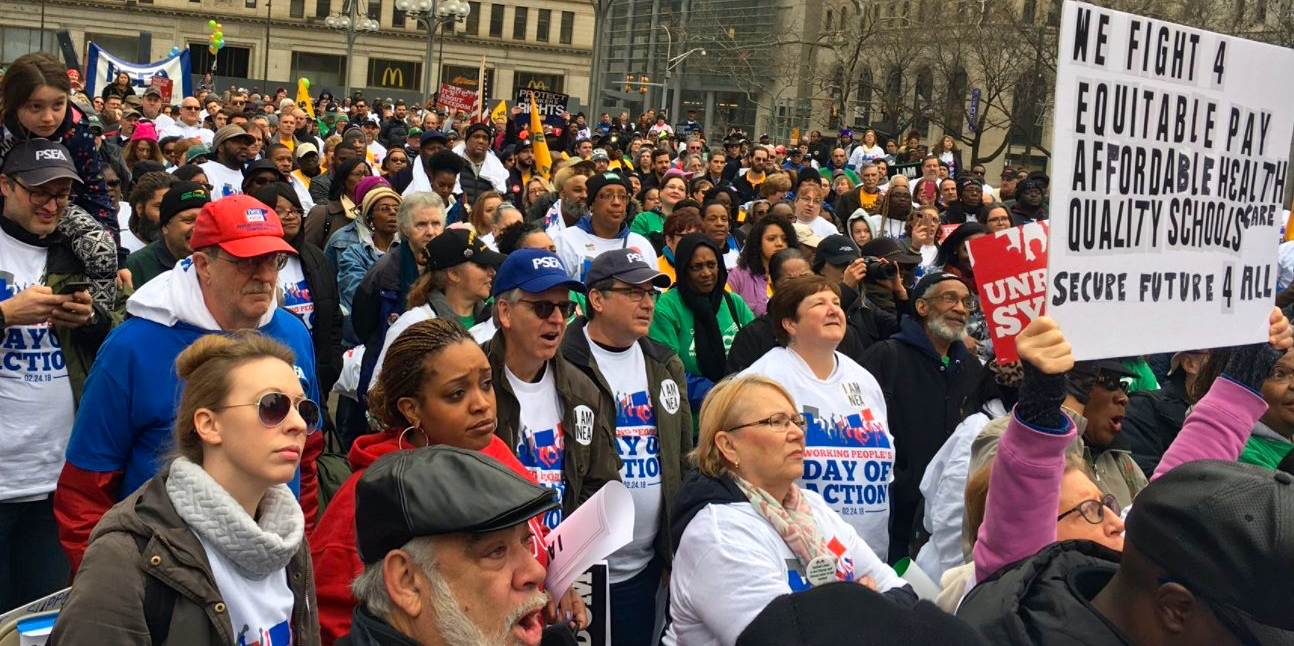For the Separation of Labor and State

Like a crazy uncle who’s overstayed his welcome, labor unions continue to wreak havoc in states across the country.
Once serving as valid checks against corporate abuse and coercion, present-day labor unions have morphed into well-connected political entities that seek to accumulate as much political power and economic benefits as possible at the expense of non-union workers.
And this isn’t confined to the private sector. Public-sector unions have consolidated their power over the years in many states, holding taxpayers hostage every year as they enjoy government largesse and cushy pension benefits at present and future taxpayers’ expense.
Out-of-control labor unionism has taken its toll in blue states and rust-belt states alike, as countless people flee from California, Illinois, and New York to more business-friendly environments, while lucrative industries such as the automotive sector in Michigan have had to downsize or rely on government bailouts just to stay afloat.
Despite the menace of forced unionism in one segment of the country, what exactly have pro-business states done to curb unnecessary union influence? The initial answer lies in right-to-work laws.
While not purist in the free-market sense, right-to-work laws represent a step forward in taming union influence by correctly removing the union practice of forcing workers to pay union dues as a condition of employment. With the existence of the National Labor Relations Board and the Norris-La Guardia Act, right-to-work laws serve as a second-best alternative. Most labor laws are already stacked in favor of labor unions, so right-to-work functions as a viable countermeasure to previous interventions by slightly leveling the playing field.
However, concerns with right-to-work remain, given that it inserts the state in an area where it should not be in the first place. Ideally, there would exist a separation of labor and state, where the government gets out of the way and lets workers contract with employers on voluntary terms.
Dan Mitchell summed it up best in his piece for the Villanova Law Review, “Government Intervention in Labor Markets: A Property Rights Perspective,” how labor policy should be handled in a free society:
Government should not interfere with certain personal decisions, including the freedom of employers and employees to contract freely, unfettered by labor regulations.… My position is one of strict neutrality. The government should not take sides in employer-employee issues.… This is a question of property rights. If another person owns a business, I do not have a right to interfere with his choices as to what he does with his property — so long as he does not interfere with my rights of life, liberty, and property.
Although the actions of states that put an end to forced unionism are laudable, policymakers should continue to deregulate labor affairs and leave all forms of decision-making between private actors.
